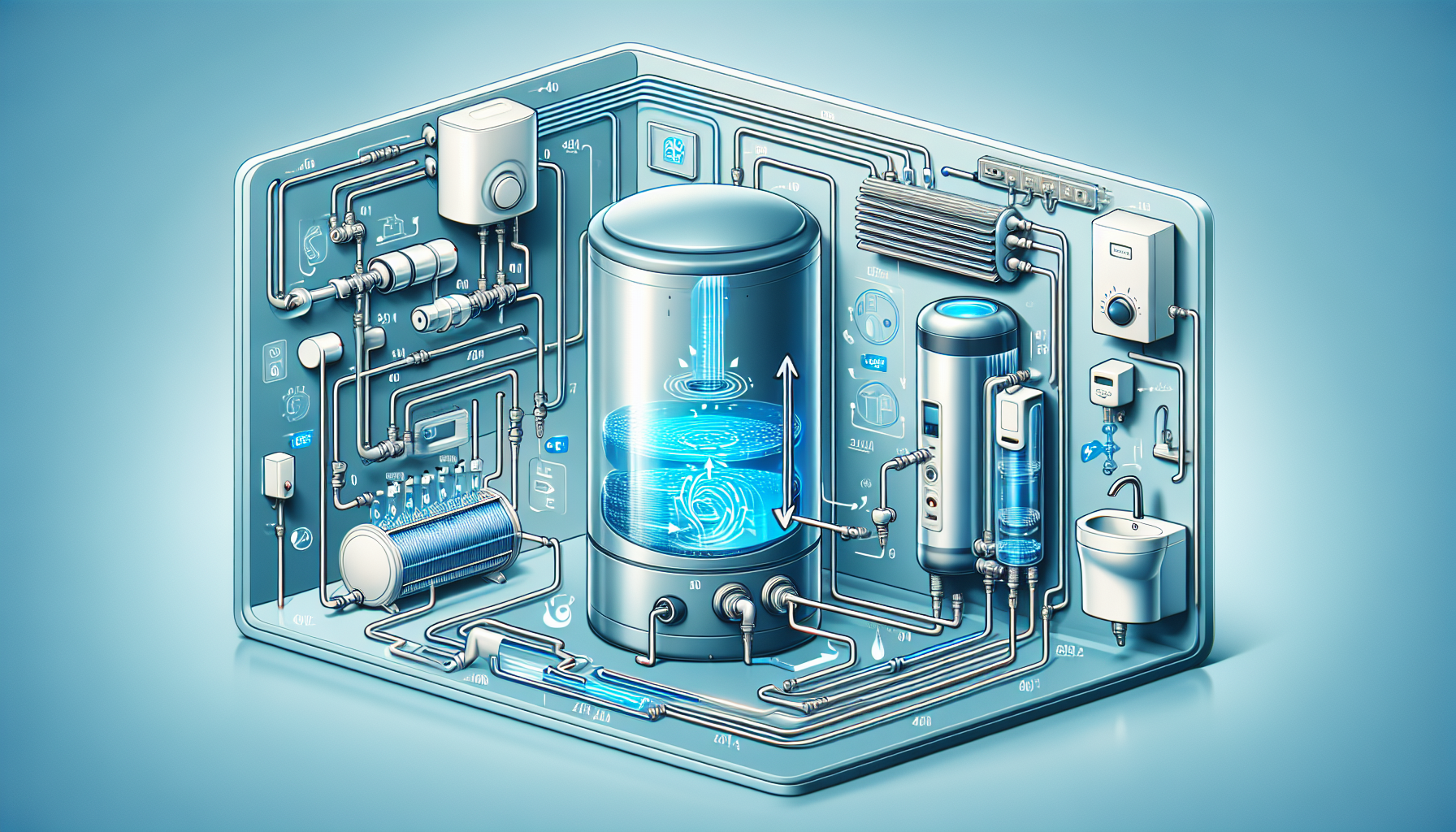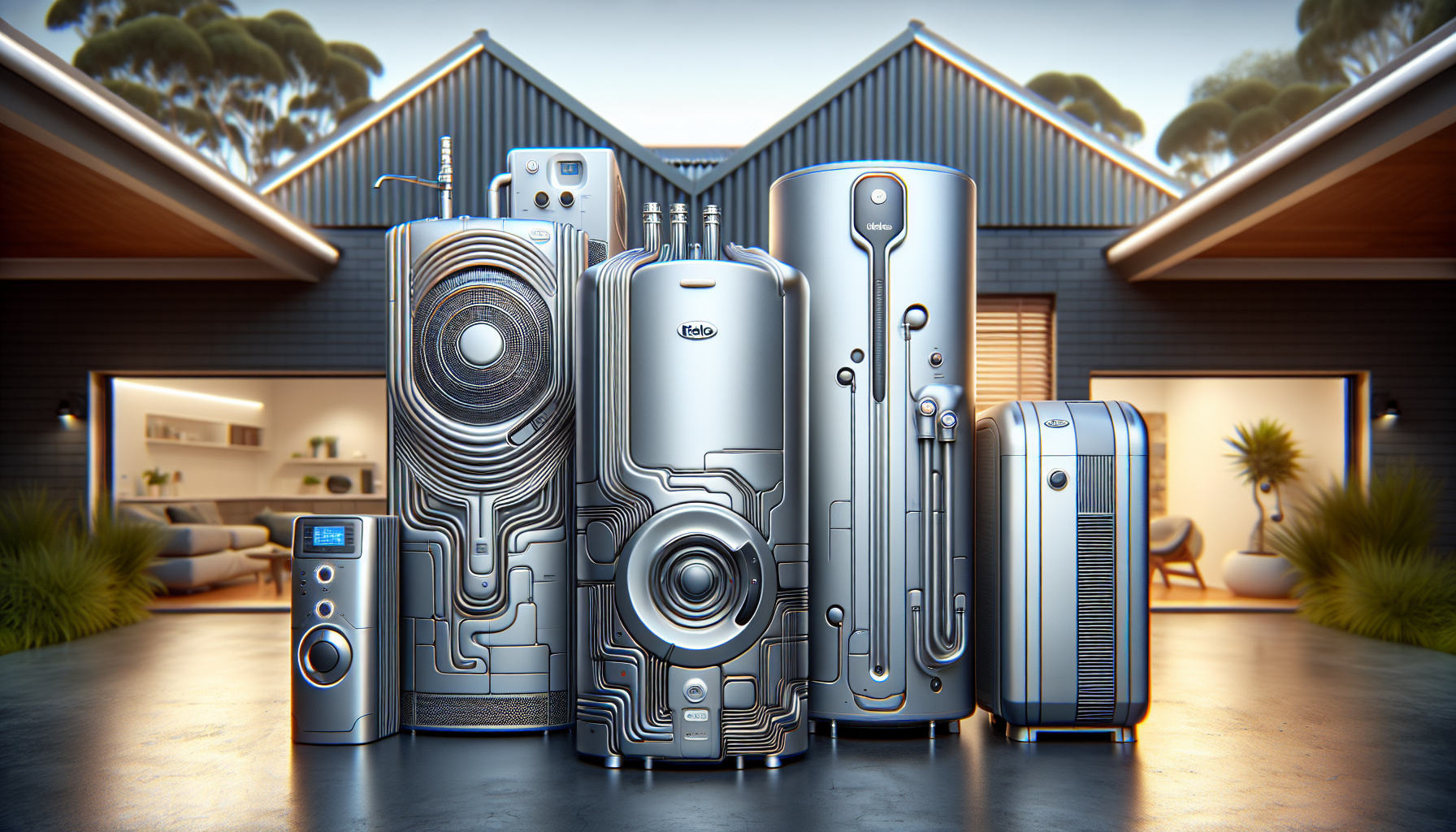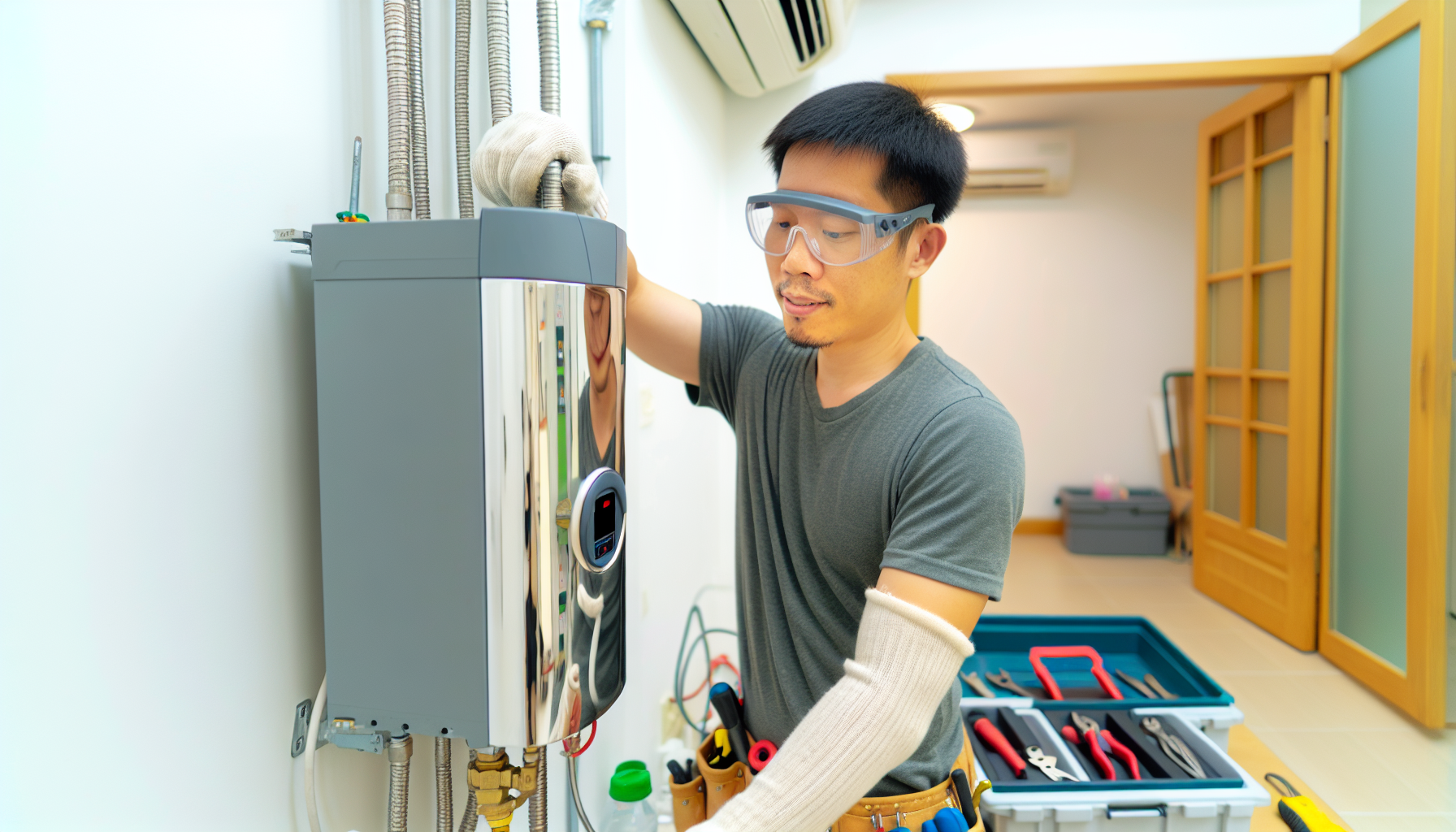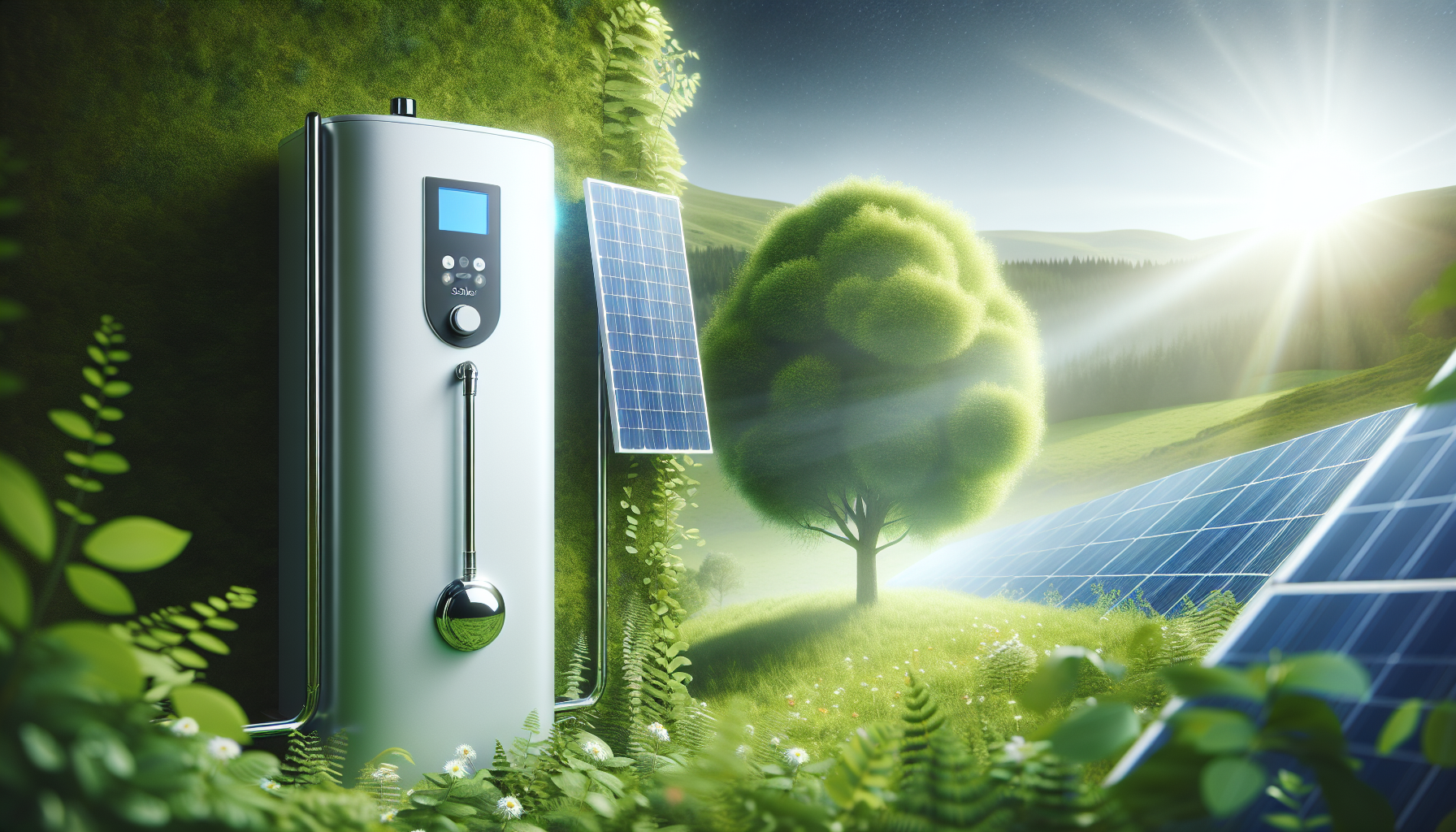Choosing the Best Electric Hot Water System for Your Home: A Comprehensive Guide
Choosing an electric hot water system for your home can be daunting. You need a system that’s not only efficient and cost-effective but also right-sized for your family’s needs. In this guide, you’ll discover how electric hot water systems work, the various types available, and what to look for in terms of brand and model. By the end, you’ll be equipped to make an educated choice without the sales fluff, ready to enjoy the comforts of reliable hot water.
Key Takeaways
-
Electric hot water systems are convenient, available in various types and sizes, and don’t require additional gas infrastructure, being suitable for small to large households.
-
Energy efficiency is crucial in choosing a hot water system, with options like heat pump water heaters using significantly less energy than conventional systems, and considerations for off-peak tariffs to reduce energy bills being important.
-
Regular maintenance, professional installation, and the availability of government rebates are vital considerations, and the systems offer environmental benefits by enabling reduced emissions and integration with renewable solar energy.
Understanding Electric Hot Water Systems

Just like a kettle, electric hot water systems heat water by using an electric element, which warms the water inside an insulated storage tank. The convenience of these systems lies in their accessibility - no additional infrastructure for gas is required as electricity is readily available in all homes. Furthermore, they offer a variety of types and sizes to cater to different household needs, from small apartments to large families.
How They Work
Here’s a simplified explanation. Electric hot water systems come in two main types: continuous flow (instantaneous) systems, and storage systems. Each type has its own set of advantages and limitations. The former heats water instantly as it flows through the device using a slower water flow rate combined with increased electricity. Imagine being able to have hot water at any moment without waiting for the tank to refill. That’s quite appealing, isn’t it?
Conversely, electric storage hot water systems function by heating the water present in a storage tank, eliminating the necessity for ventilation. This allows for quick heating and minimal heat loss. If your household has periods of high demand for hot water, a continuous flow system can serve as a supplementary booster to an existing electric storage system with limited capacity, ensuring there is always enough hot water to go around.
Types of Electric Hot Water Systems
Electric hot water systems come in two primary categories: storage tank systems and instantaneous systems. Storage tank systems feature an insulated cylinder with an electric element at the bottom. Depending on their size, these systems can run on off-peak or peak electricity tariffs and come in mains pressure or gravity-fed variants, providing different water pressures.
On the other hand, there are three main types of hot water systems to consider:
-
Storage systems, which store hot water in a tank and keep it heated until it is needed.
-
Instantaneous systems, which eliminate the need for storage and heat water on-demand using a high-powered element.
-
Gas hot water systems, like heat pump hot water heaters, which are energy-efficient options in warmer climates. They use ambient air to heat water and can potentially increase self-consumption of onsite solar generation.
Isn’t it wonderful to have a variety of choices?
Evaluating Your Hot Water Needs
Selecting the right size and type of hot water system for your household is a big decision. Get it right, and you have a reliable supply of hot water without any wastage or overspending. But how do you know which one is the perfect fit for your home? Let’s discover the answer together.
Sizing Your System
Hot water system sizes vary considerably, ranging from approximately 25 liters to a whopping 400 liters. This range caters to various household sizes and needs. When sizing a hot water system, key factors to consider include:
-
The number of people in the home
-
The number of showers or outlets
-
Your family’s water usage habits
-
The type of shower heads used
Peak hot water usage periods, such as morning routines, are crucial in determining the appropriate hot water system capacity to meet a household’s needs. For instance, a 400-liter tank may be suitable for 5-8 people with high peak water usage, while a smaller household of 1-3 people with low peak usage might be sufficiently served by an 80-liter tank. Achieving the perfect balance is the key!
Energy Efficiency Considerations
Energy efficiency plays a vital role in choosing the right hot water system. For instance, heat pump water heaters are highly efficient, using only 30% of the energy compared to conventional systems, which significantly reduces running costs. Plus, systems with higher Energy Star ratings are more energy-efficient, correlating to reduced utility bills over time.
You may also consider electric storage hot water systems set to operate on off-peak tariffs to reduce energy bills. However, it’s worth noting that while they are typically the cheapest to buy, they can be the most expensive to run, particularly on peak tariffs. Therefore, integrating smart technologies with electric hot water heating, like heat pumps and resistance heaters, can lower energy expenditures by leveraging excess solar generation.
Popular Brands and Models

Now that you have a basic understanding of electric hot water systems and have evaluated your needs, let’s explore the best hot water system options among some of the popular brands and models in the Australian market. These brands have earned their reputation through consumer trust and the quality of their products.
Top Brands
In the world of electric hot water systems, certain brands stand out. Among these, Rinnai, Rheem, and Dux are notable for being Australian-owned brands. Rinnai, for instance, is renowned for its Infinity Range, which has garnered positive reception from users for its performance. However, some models like the Rinnai HOTFLO electric storage units have faced criticism due to incidents of tank leaks occurring prematurely.
On the other hand, Dux maintains its status as a well-established brand in the electric hot water market. Their models, like the Dux Prodigy and Dux Proflo, are popular among Australian households. Considering these reputable brands brings you a step closer to identifying the ideal hot water system for your home.
Recommended Models
When it comes to recommended models, the Rinnai Infinity Range stands out for its efficient heating performance, though some models may deliver hot water with a slight delay. Another well-regarded model is the Rinnai B26, ideal for those replacing older water heaters. However, it’s worth noting that it emits a whistling sound during operation.
From Dux, the Prodigy 4 has gained commendation for its dependable provision of hot water, making it a suitable choice for small families. However, some users of the Dux Proflo electric storage systems have reported insufficient hot water supply for their households. Like with any purchase, weighing both the pros and cons is vital for making a well-informed decision.
Installation and Maintenance

Once you’ve selected the perfect hot water system for your home, the next steps are installation and maintenance. Ensuring a safe and efficient installation by a licensed professional is paramount.
Plus, regular maintenance protocols are necessary for the system’s efficient operation over time.
Finding a Licensed Installer
The installation of an electric hot water system is not a DIY project. It should be done by a certified professional to ensure safety and compliance with local regulations. But how do you find a licensed installer?
You can consult the following sources to find a licensed installer for hot water systems:
-
Local trade organizations
-
Government licensing bodies
-
Personal recommendations from friends, family, or neighbors who have recently installed hot water systems
These sources can provide you with reliable information on certified professionals.
Routine Maintenance
Proper maintenance of your electric hot water system, including your hot water heater, is essential for its efficient operation and longevity. Regular visual inspections can help you identify early signs of leaks, rust, or wear. It’s also recommended to have yearly assessments by a licensed plumber to check that components like the heating element and wiring are in good working order.
Certain components, such as the sacrificial anode rod and the temperature and pressure relief valve, require regular checks and replacements. These routine checks can prevent potential hazards and ensure the system keeps serving you hot water without any hiccups.
Government Incentives and Rebates
Did you know that you can get financial assistance for installing electric hot water systems? Yes, you read that right. Various Australian, state, and territory government rebates and assistance, including small-scale technology certificates (STCs), are available for electric hot water systems.
Let’s look into these financial benefits.
National and State Programs
If you live in Victoria, upgrading to an efficient hot water system, such as a heat pump or solar water heater, can qualify you for financial incentives through the Victorian Energy Upgrades or Solar Victoria programs. However, certain conditions need to be met, like the removal of the existing hot water system and the creation and assignment of Victorian Energy Efficiency Certificates to approved partners.
Over in New South Wales, the Energy Savings Scheme enables residents to seek out incentives by contacting Accredited Certificate Providers (ACPs) recognized by the Independent Pricing and Regulatory Tribunal (IPART). But remember, you need to complete a nomination form provided by an approved supplier prior to completing installation, as rebates are not available post completion.
Eligibility Criteria
Before you get excited about these incentives, it’s crucial to verify your eligibility. For the NSW Energy Savings Scheme, you must contact an approved supplier to verify eligibility when considering an upgrade to your hot water system. Hence, make sure to conduct thorough research before finalizing any decisions.
Environmental Benefits of Electric Hot Water Systems

Aside from their convenience and cost-effectiveness, electric hot water systems also offer significant environmental benefits. They play a crucial role in helping Australia meet its decarbonisation targets by supporting a transition to renewable energy.
Let’s delve deeper into these advantages.
Reduced Emissions
Water heating can account for up to 30% of household energy use and approximately 25% of greenhouse gas emissions from an average Australian home. That’s a substantial portion! By switching to electric water heaters, there is a potential to significantly reduce annual greenhouse gas emissions from 3.5 to 0.71 million tonnes per year of CO2 by 2040. That’s a significant effect, don’t you think?
Moreover, electrifying domestic hot water with electric technologies provides greater efficiency and allows for the flexible matching of demand with renewable generation. A rapid shift to both resistance and heat pump electric water heaters could reduce greenhouse gas emissions from domestic water heating by up to 80%. That’s definitely a victory for the environment!
Solar Integration
The integration of solar power with electric hot water systems can further enhance their environmental benefits. By using a solar hot water system, electric hot water systems can be effectively integrated with solar hot water systems, either by installing rooftop photovoltaic (PV) systems or using solar power diverters. This significantly lowers the reliance on grid electricity, making the system more cost-effective and environmentally friendly.
Instant electric water heaters and resistance electric water heaters are particularly suited for pairing with renewable energy. Integrating solar energy with electric hot water systems contributes to considerable savings in running costs and promotes environmental benefits through reduced emissions, making it an attractive option for households aiming for energy independence and sustainability.
Summary
In conclusion, electric hot water systems offer a myriad of benefits, from convenience to cost-effectiveness and environmental sustainability. By understanding how these systems work, evaluating your hot water needs, and being aware of the various brands and models available, you can make an informed choice. Remember to consider factors like installation, maintenance, government incentives, and the potential for solar integration. With all this knowledge at your fingertips, you’re now ready to make the switch to an electric hot water system that’s perfect for your home and the environment.
Frequently Asked Questions
What is the most efficient electric hot water system?
Heat pump water heaters are the most efficient electric hot water systems, as they can extract heat from the ambient air outside to heat the water in the tank. They are 2-3 times more energy efficient than storage electric hot water systems.
Are electric hot water systems expensive to run?
Electric hot water systems may be cheaper to install, but they can be more expensive to run in the long term due to the higher cost of electricity compared to natural gas. It's important to consider the ongoing running costs before making a decision.
Is there an instant electric hot water system?
Yes, instant electric hot water systems are energy efficient and provide hot water on demand without the need for a storage tank, making them suitable for homes with limited space.
How much does an electric water heater system cost?
The installation cost of a gas or electric hot water system varies. It is best to request quotes from multiple providers to find the best price.
Is electric water heating expensive?
Electric water heating can be expensive to run if you don't have access to cheap electricity or if you don't time your hot water usage wisely. It is not very energy efficient.




























